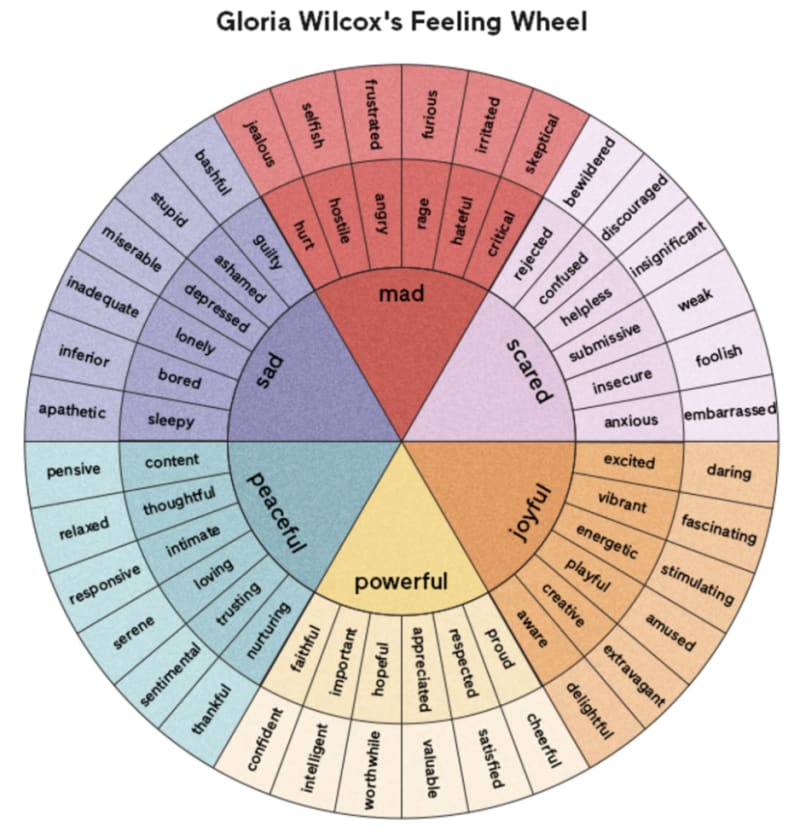7: How Are You Feeling?
Use "I feel..." statements to clearly and compassionately communicate your emotions.
Years ago, I read and took this advice rather haphazardly. I started tough conversations with "I feel..." statements as if they're magic words that would ensure the other person wouldn't miss my point or worse, get offended by what I was about to say. I thought by merely starting a statement with those two little words, I was entitled to someone else's understanding—after all, feelings cannot be wrong. Feelings are feelings, right?
I was wrong.
In the book Nonviolent Communication by Dr. Marshall B. Rosenberg, he notes how we often use the word feel without actually describing a feeling.
But how do we know the difference?
1. Distinguish feelings from thoughts.
If the word "feel" is followed by...
- words such as that, like, as if
- pronouns I, you, he, she, they, it
- names or nouns referring to people
Most likely, we're telling the other person what we think, not how we feel.
e.g. "I feel that you should know better," "I feel it is useless," ""I feel my boss is being manipulative."
2. Distinguish between what we feel and we think we are feeling.
In the sample statement, "I feel inadequate as a singer," the speaker is expressing what they think about their ability—not really how they feel.
Expressing actual feelings in this example could be: "I feel frustrated with myself as a singer."
3. Distinguish between what we feel and how we think others react or behave toward us.
"I feel unimportant to the people with whom I work," "I feel misunderstood," "I feel ignored."
These are interpretations of what others are doing, not what we're actually feeling. To turn these into expressions of feelings, we could instead say: "I feel hurt," "I feel discouraged," or "I feel lonely."
When you can't put a finger on your emotions, try using emotion wheels like this:

"By developing a vocabulary of feelings that allow us to clearly and specifically name or identify our emotions, we can connect more easily with one another. Allowing ourselves to be vulnerable by expressing our feelings can help resolve conflicts." — Dr. Marshall B. Rosenberg
• • •
Hi, and thanks for reading! Get Your Life Together is a candid, creative, and chaotic blog for young adults trying to put the pieces of their lives together.
🔖 Bookmark this blog to read daily atomic posts on creative living, compassionate productivity, lifelong learning, and personal growth.
💌 Get the newsletter for multi-passionate young adults who are in pursuit of wisdom and wonder.
☕️ Feeling generous? Buy me a coffee.